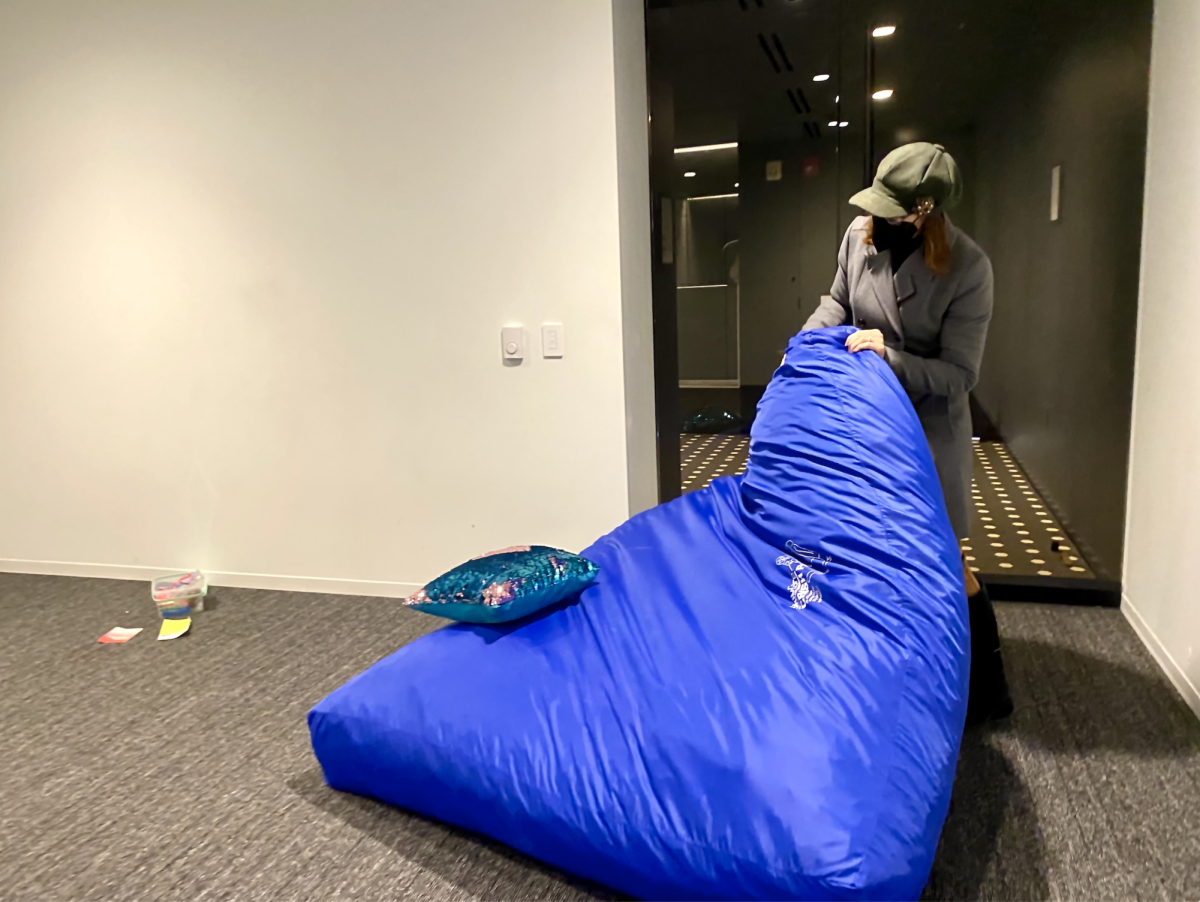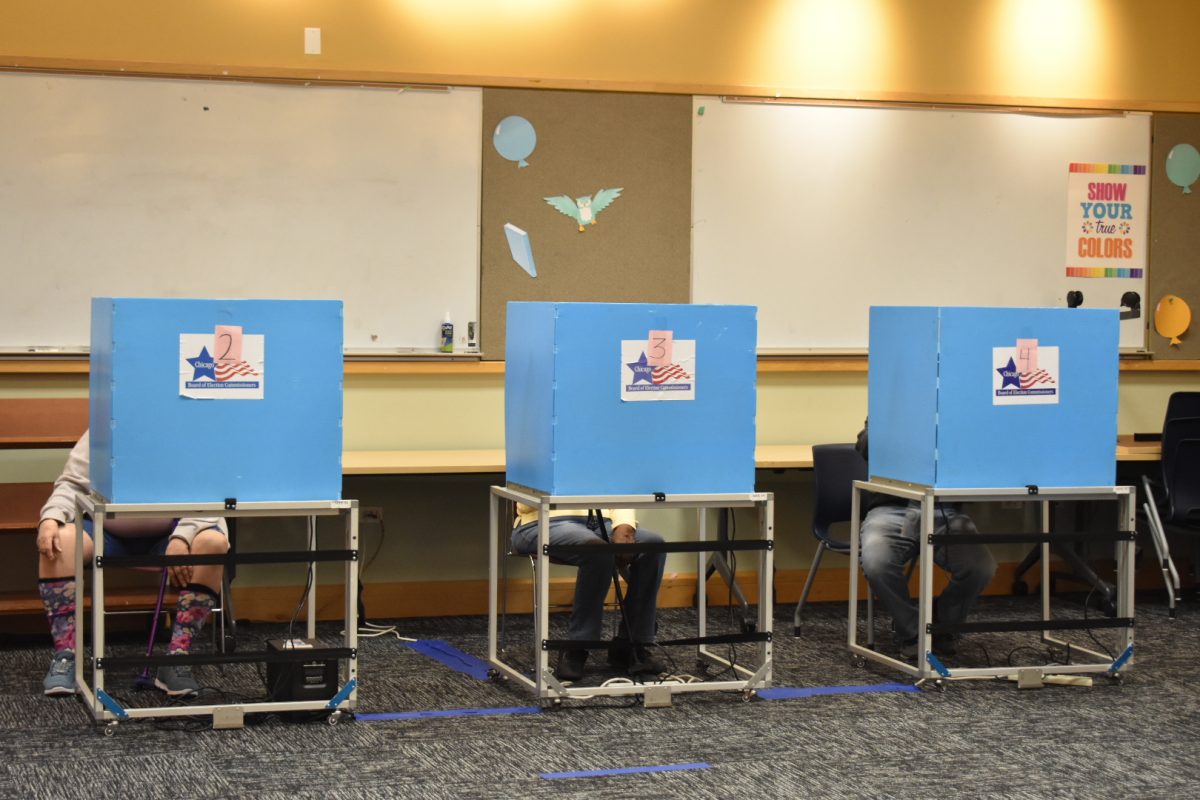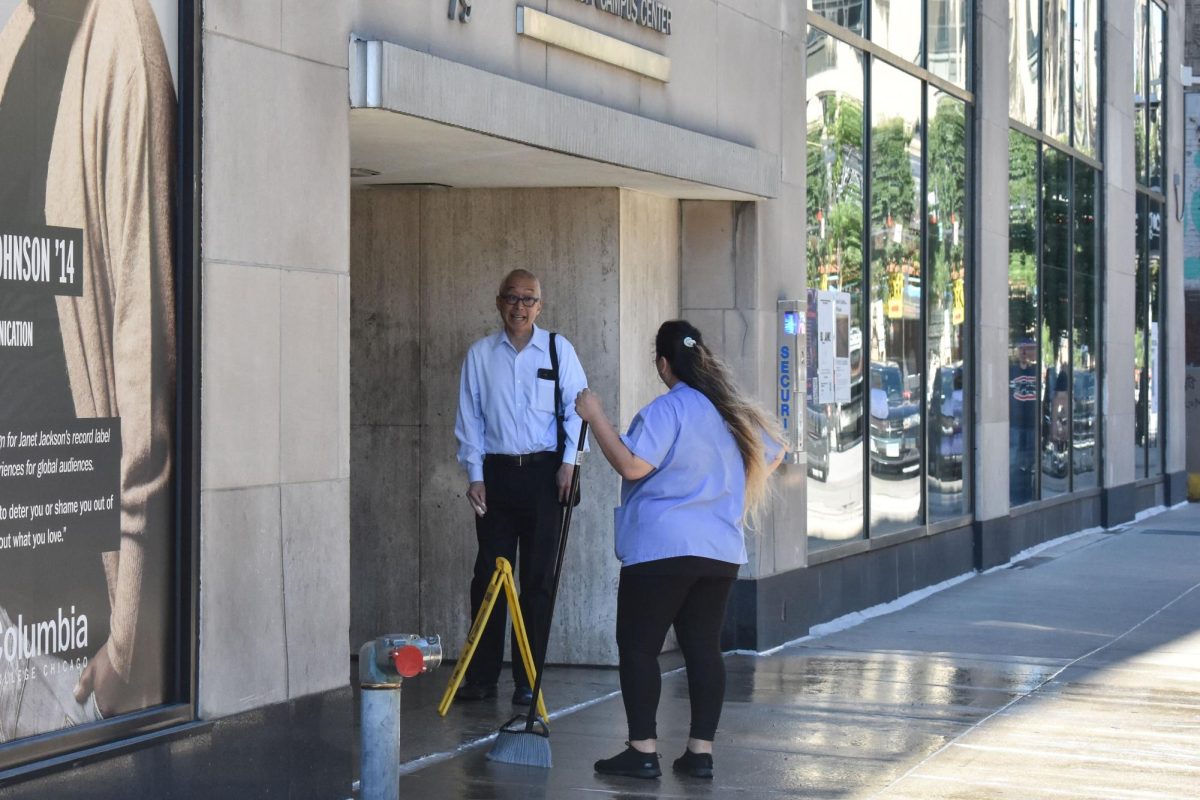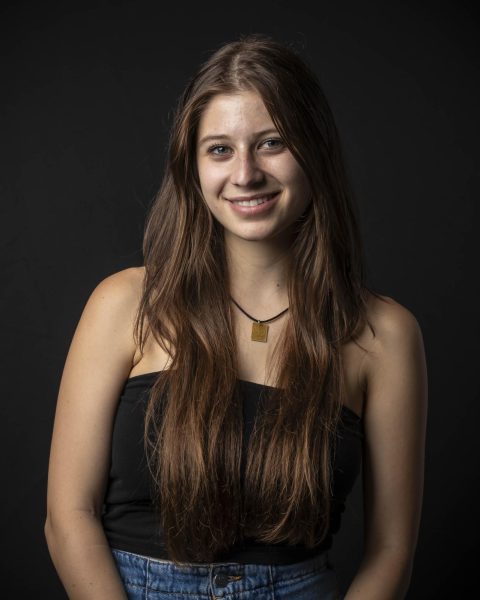After student pushback, Columbia’s sensory corner is moving out of the Student Center’s Reflection Space.
A crash pad and lamp were moved from the 4th floor Reflection Space on Monday morning, Oct. 9. The items are being moved to an empty office space located on the 3rd floor of the Student Center.
Grace Overbeke, an assistant professor in the Theatre Department who won a DEI grant that paid for the sensory corner, facilitated the move. On Monday, she dragged the crash pad out of the prayer room.
If the sensory corner “is disruptive to people who are trying to pray, that isn’t good for anybody,” Overbeke told the Chronicle. “Whether it’s the people trying to pray or the people trying to do sensory regulation.”
Samaher AbuRabah, a senior journalism and public relations major and vice president of the Muslim Student Association, applauded the college for moving so quickly after students objected.
The Chronicle first reported about the new sensory space on Oct. 3. There was immediate outcry on social media.
Having the sensory corner in the prayer room “wasn’t fair to neurodiverse students or religious students,” AbuRabah said. “Both deserve an established space.”
The blue crash pad was in the corner in the direction of “qibla,” meaning Muslim students had to face the sensory area – and any people using it – while praying, something AbuRabah said was uncomfortable to do.
Noha Alhams graduated from Columbia with a degree in interior architecture in May 2023 and found out about the sensory corner’s location through friends who are still at the college.
She said that although having a sensory space is important, putting it in the prayer room – a space that many people in the Columbia community use, regardless of religion – felt like a step backwards.
“I am glad [the college] did something about it,” Alhams said. “By listening to students and moving the sensory space, it will impact students more than they think it will … this will make the environment better for everyone.”
While at Columbia, Alhams was taught by one of the professors who helped build the Student Center. She said the layout of the building, and the Reflection Room specifically, was intentional for students to feel comfortable, welcome and supported.
“It can be hard to be vulnerable about these topics since religion can be such a sensitive topic,” Alhams said. “That’s why it is so important for students to have the space to be heard.”
Nasim Ellahi, who graduated from Columbia in May 2023 with a degree in graphic design, said having the sensory room inside the reflection space took away from “its importance.”
“The sensory addition can be a part of meditation and reflection but the awkward placement, single bed and being in the room felt weird- also that it was facing the direction in which Muslim students had to pray,” Ellahi said. “This would be perfect if the reflection space had a separate room for the sensory room.”
McKay Davis, a senior marketing major, was one of the students who voiced their concerns directly to the college.
Davis emphasized the importance of having a sensory corner – just not inside the prayer room, a sacred space to many on-campus. They said relocating the sensory space as soon as possible was “the best decision.”
With the “amount of money that has been misappropriated at this school, you would think you would find space for two different marginalized communities that aren’t overlapping,” Davis said.
The prayer room in the Student Center is the only designated space on campus for students to pray in. The Reflection space is also used for meditation.
Multiple students told the Chronicle that not only Muslim students use the space but also Jewish, Christian and Buddhist students.
Students from Hillel, the Jewish student organization, joined the MSA in writing a letter to the college’s Services for Students with Disabilities about the sensory corner’s placement in the prayer room.
AbuRabah said the prayer room has been used incorrectly even before the sensory corner was set up there.
Students have used the room to hang out or eat, AbuRabah said.
Ellahi had a similar experience.
“I think us Muslim and other faith students were most stressed out with this situation because people constantly abuse and disuse the reflection space, such as not using the shoe cubbies, using the room for inappropriate acts, etcetera,”
The prayer room used to be locked, and students who wanted to use it had to ask security at the Student Center. It recently has remained unlocked, AbuRabah said.
MSA has been pushing for the Student Center to start locking the door again to keep it clean. It was locked on Monday morning when a Chronicle reporter visited.
Charee Mosby-Holloway, director of Student Diversity and Inclusion, did not respond to the repeated email and phone requests for comment.















